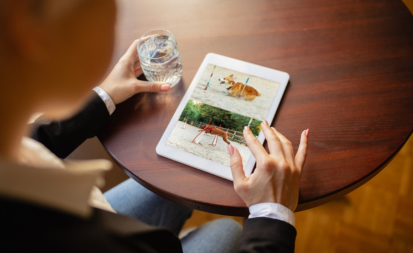The Impact of Social Media Marketing on The Hospitality Industry
Authored article by Tanu Singh, Associate Director Marketing Communications & PR, Signum Hotels and Resorts With the ever-evolving technology landscape, social media has become an indispensable tool for many activities, from disseminating important issues to marketing.

Authored article by Tanu Singh, Associate Director Marketing Communications & PR, Signum Hotels and Resorts
With the ever-evolving technology landscape, social media has become an indispensable tool for many activities, from disseminating important issues to marketing. It is crucial for a company to use the right strategies and techniques in its marketing activities. By 2022, social media will have over 4.9 billion active users, making it the most important platform for engagement across all industries. About half of the world’s population devotes an average of 15% of their day to using social media, opening up numerous business opportunities.
Almost nearly all millennials post photos on social media during their travels. Facebook’s annual advertising revenue of $55 billion comes largely from mobile ads. Most travellers book their trips on mobile devices and use social media while on holiday, which can lead to 79% more engagement on posts that include location tags. Travel agents report more interactions with their customers when they adopt a social media strategy. Statistics show that 66% of travel bookings are made by women. In addition, 52% of Facebook users are inspired by photos of friends or family members before booking a trip, while 51% of Booking.com users want to visit destinations outside their circle of friends.

As social media becomes more integrated into modern life, hotels and resorts are using these platforms as a great way to market themselves. All over social media, you can find reviews, ratings, posts and updates on destinations and experiences to help customers plan their trips. Travellers now rely on these platforms, making them an incredibly powerful tool for the hospitality industry. Social media has become a driving force behind the hotel booking process, from initial awareness to consideration and decision-making; it will only become more important as we move further into the digital age.
Social media platforms have a large number of active users, making them a great way to increase your brand’s reach, visibility and engagement. By regularly engaging with users on a high-profile platform, you can strengthen your brand’s image and increase its authority. Ultimately, your popularity on social media can be expected to lead to more bookings and revenue.
Greater Visibility: By using targeted algorithms on social media, you can easily make yourself visible to the most appropriate users. You can also further increase the visibility of your posts by configuring boost settings. Adding images, location tags and appropriate hashtags also helps to improve the findability of your content
Increased Reach: Audiences on social platforms are similar to websites that need to attract visitors. With the right targeting strategy, you can use your current target groups or expand your reach to new user groups.
Higher Engagement: Social media encourages free communication and is the best way to connect with your audience. Travel is one of the most discussed topics among social media users and your brand has the potential to break the ice
More Conversations: Through their social accounts, many travellers get suggestions from friends and relatives. Here, a well-managed hotel brand has a higher chance of converting than a search engine results page (SERP) with plenty of results.
Better Authority: Local brand ratings and evaluation systems have been replicated by social media platforms. Positive feedback from your followers and on social media can provide you a lot of knowledge regarding your place and draw in the right users. The “Recommendations” function on Facebook, TripAdvisor, and other OTAs can be used as a direct indicator of customer satisfaction.
However, be ready for a reaction from unsatisfied users or visitors. A hotel’s Facebook page, Trip Advisor and other OTA accounts may be a simple approach to promote brand exposure. The good news is that our field team is prepared to offer an immediate fix since they have up-to-date knowledge about the issue.
Using the correct analytical tools, hoteliers may discover what guests normally want and how they react to various services and the entire property. It is critical that business owners in the hospitality industry develop mobile applications since travellers are increasingly using their mobile devices to find the best places to stay, book rooms, and access other services while travelling.
—–
 English
English French
French German
German Italian
Italian




